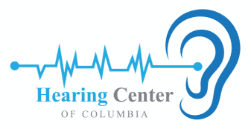Can Hearing Loss Be Reversed? When It’s Possible and When It’s Not
Noticing changes in your hearing often raises the question of whether it

By: admin | March 26, 2024
Hearing loss is a widespread experience that goes beyond just affecting your ability to hear. Studies have shown that there’s a connection between hearing loss and cognitive decline. While this connection might not be instantly obvious, it’s an important factor to keep in mind when taking care of your hearing health.
Understanding this connection can give you a fuller picture of your hearing health and how it can impact your overall well-being. The link between hearing loss and cognitive decline underscores the importance of regular check-ups with your hearing specialist. It also emphasizes the need to address any hearing issues promptly. This understanding can help you make informed decisions that take into account not just the hearing aspects but also the wider implications for your cognitive functions.
Let’s first understand the basics of hearing loss. At its core, hearing loss means a decrease in the ability to hear sounds clearly or understand speech effectively. It can happen gradually over time or suddenly, due to various factors like age, exposure to loud noise and certain medical conditions.
Hearing loss isn’t just about volume; it’s also about clarity. You might find that you can hear people speaking but struggle to understand what they’re saying, especially in noisy environments. This is because hearing loss often affects higher frequencies first, which include consonant sounds that are essential for speech comprehension. In the next section, we’ll discuss how different types of hearing aids can help manage these issues and improve your overall hearing health.
The brain and hearing have a unique bond, a relationship that is more intertwined than you might initially think. This connection plays a critical role in how we interpret and understand the world around us.
Our brain works in harmony with our ears to process sounds. The ear collects sound waves and transforms them into electrical signals. These signals are then sent to the brain, which interprets them as recognizable sounds. This complex process allows us to engage in conversations, enjoy music or simply appreciate the calming sound of rain against the window. However, when hearing loss occurs, this delicate balance can be disrupted.
As we continue, let’s focus on the concept of cognitive decline. This term refers to a gradual decrease in cognitive functions, which can include memory, attention and thinking skills. It’s a natural part of aging but can be exacerbated by factors like hearing loss.
Cognitive decline isn’t an immediate result of hearing loss. Instead, it tends to develop over time as the brain struggles to compensate for the incomplete or distorted signals it receives from the ears. This extra strain on the brain can lead to fatigue and eventually result in cognitive decline.
Understanding this process is essential because it emphasizes the importance of maintaining good hearing health. By taking care of your ears and addressing any hearing issues promptly with your hearing specialist, you could potentially reduce your risk of cognitive decline.
Building on our understanding of cognitive decline, let’s discuss the connection between hearing loss and cognitive decline. Research shows that people with untreated hearing loss are more likely to experience cognitive decline than those without hearing loss. This connection arises because when your brain works harder to interpret sounds due to hearing loss, it can lead to mental fatigue and over time, result in cognitive decline. Social isolation often associated with hearing loss can also contribute to this decline. Therefore, it’s essential to address any hearing issues promptly with your hearing specialist not only for better auditory health but also for improved cognitive well-being.
Now, let’s look at the scientific studies that back up this connection between hearing loss and cognitive decline. Think of it like a puzzle; each piece of research adds another part to the complete picture.
One key study by Johns Hopkins University found that individuals with moderate hearing loss were three times more likely to have a history of falling. This is because our brain uses some of its resources for hearing, which are then unavailable for maintaining balance. Similarly, a French study showed that people with profound hearing loss had significantly lower cognitive scores compared to those without hearing loss. These findings highlight the importance of regular check-ups with your hearing specialist to maintain both your auditory and cognitive health.
Untreated hearing loss has been increasingly linked to cognitive decline and various conditions, including dementia and Alzheimer’s disease. When individuals struggle to hear sounds clearly due to untreated hearing loss, their brains must work harder to process auditory information. This increased cognitive load can lead to cognitive fatigue and overload, diverting resources away from other functions, like memory, attention and executive function.
Untreated hearing loss can contribute to social isolation and withdrawal from engaging in meaningful social interactions and activities. The resulting loneliness and reduced cognitive stimulation have been associated with accelerated cognitive decline and an increased risk of developing cognitive impairments over time. Studies have shown that individuals with untreated hearing loss are at a higher risk of experiencing cognitive decline and developing dementia compared to those with normal hearing.
Additionally, untreated hearing loss can lead to changes in brain structure and function over time. Auditory deprivation due to untreated hearing loss may result in the degeneration of auditory pathways in the brain, as well as alterations in neural connectivity and synaptic plasticity. These changes can have cascading effects on cognitive processes and increase the risk of cognitive decline and dementia.
Shifting from the importance of understanding the connection between hearing loss and cognitive decline, we now focus on the necessity of regular visits to your hearing specialist. These appointments play a vital role in maintaining your overall auditory health. They allow for early detection and management of any potential issues, thus reducing the risk of complications.
Regular check-ups with your hearing instrument specialist provide an opportunity to monitor changes in your hearing over time. They also offer a chance to adjust your treatment plan as necessary, ensuring that it continues to meet your needs effectively. Furthermore, these visits allow for routine maintenance of any hearing aids or devices you may use, ensuring they remain in optimal working condition.
In essence, regular appointments with your hearing specialist are a proactive step towards safeguarding both your auditory and cognitive health. So make it a priority to schedule and keep up with these important visits. After all, protecting your hearing is not just about enhancing sound quality; it’s about preserving overall well-being too.
While check-ups are one way you can stay on top of hearing loss, let’s also look at how you can take an active role in managing your condition and potentially boosting your cognitive health. First and foremost, addressing any hearing issues promptly is essential. This doesn’t just mean seeking help when you notice a problem but also involves regular screenings to detect any potential issues early on.
In addition to seeking professional help, there are steps you can take in your daily life to protect your hearing health. These include limiting exposure to loud noises, using protective equipment when necessary and maintaining a healthy lifestyle overall. Keep in mind that these measures not only help preserve your auditory health but also contribute positively towards cognitive well-being.
Lastly, managing hearing loss is not just about improving sound quality; it’s about ensuring overall well-being too. By taking proactive steps towards better hearing health, you’re not only enhancing your ability to communicate effectively but also potentially reducing the risk of cognitive decline. So, take charge today – for the sake of both your ears and brain!
These devices work by amplifying sounds so they’re easier for you to hear and understand. They can be particularly beneficial if you struggle with speech comprehension due to high-frequency hearing loss.
Hearing aids are not just tools for better hearing; they’re an investment in your overall well-being. By improving your ability to communicate, they can enhance your social interactions and potentially reduce the risk of cognitive decline associated with social isolation. Regular maintenance and adjustments by a hearing instrument specialist ensure these devices continue to serve you effectively, further emphasizing the importance of professional intervention.
In light of the research showing a link between hearing loss and cognitive decline, taking steps towards better hearing health is more important than ever. It’s not just about preserving your ability to hear; it’s about protecting your cognitive functions and maintaining a good quality of life.
If you’ve noticed changes in your hearing or have concerns about its potential impact on your cognitive health, don’t hesitate to reach out for professional help. At Hearing Center of Columbia, our team is dedicated to providing comprehensive care tailored to meet each individual’s needs. Contact us at our Columbia, TN location at (931) 548-1166 for more information or to schedule an appointment with one of our skilled hearing specialists.
Tags: cognitive health, hearing loss and mental health, types of hearing loss

Noticing changes in your hearing often raises the question of whether it
By: admin | January 19, 2026

Exercise benefits your body in ways that extend beyond muscle strength and
By: admin | November 18, 2025

When hearing difficulties begin, it can feel challenging to adjust to the
By: admin | September 24, 2025
